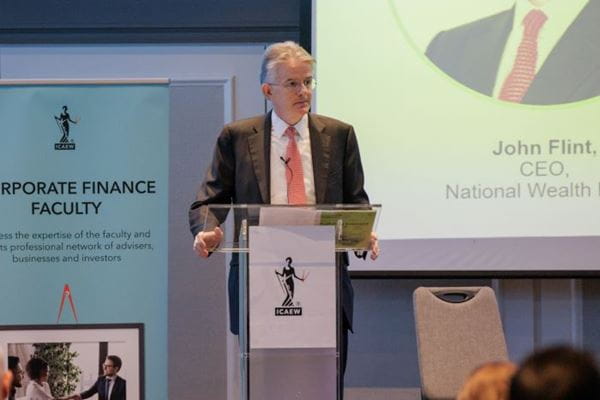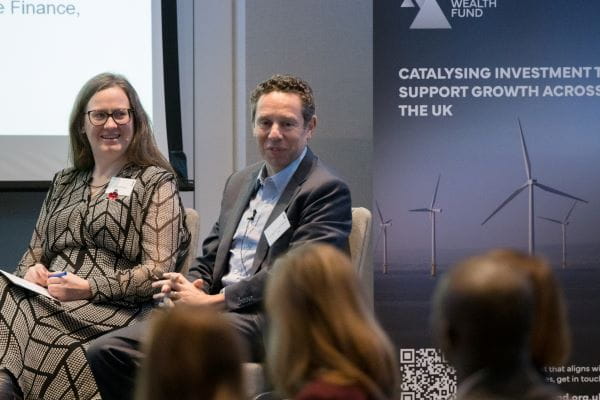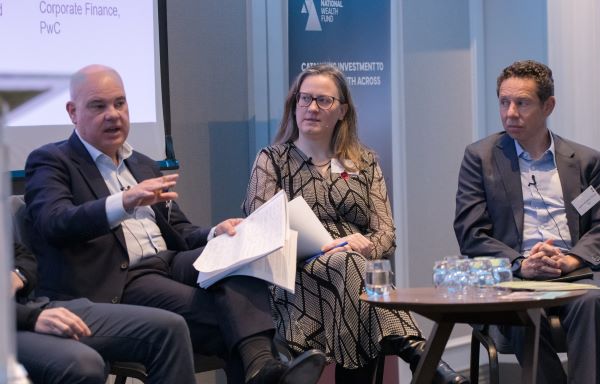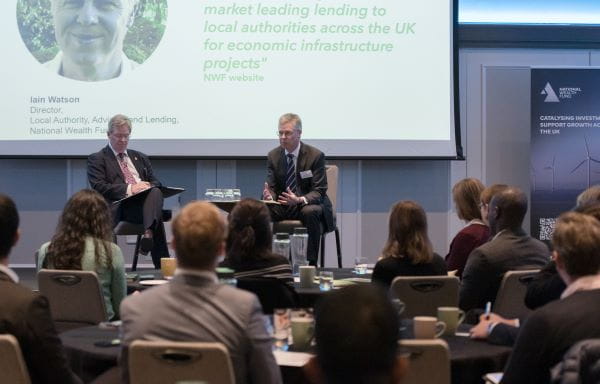Demand for private capital
Government funding
At the UK government’s International Investment Summit on 14 October 2024, it announced that the NWF will be capitalised with £27.8bn to catalyse private investment in the market:
That is why in less than a week we are establishing a new National Wealth Fund and bringing together the key institutions that will help unlock investment in new and growing industries”
Industrial strategy
Additionally, the UK government has also promised to publish a 10 year national infrastructure strategy in spring 2025.
Contributing to investment solutions
Mindful of the opportunity to unlock investment in infrastructure projects (many of which are advised by members of ICAEW and / or the Corporate Finance Faculty), the Corporate Finance Faculty hosted an ‘Infrastructure investment forum for investors and advisors’ on 5 November 2024, in collaboration with the National Wealth Fund (NWF).
It is a huge privilege to be entrusted with the responsibility of leading the National Wealth Fund. Building on the strong foundations we have laid as UKIB, we will hit the ground running, using sector insight and investment expertise that the market knows and trusts to unlock billions of pounds of private finance for projects across the UK.”
Key takeaways from the forum
-
The role of the NWF
The NWF – formerly the UK Infrastructure Bank - invests public money in projects that meet its investment principles with a strong focus on catalysing private capital.
It was clear that it does not provide grants.
By November 2024 it had invested £4.6bn (of the £22bn at its disposal) since its inception in 2021, into 43 projects which has mobilised over £12 billion in private capital and created or supported 17,600 jobs.
In October 2024, on becoming the NWF, the government provided an additional £5.8bn of capital to deploy, against a wider mandate beyond infrastructure looking at supporting the broader industrial strategy. More detail on this will be announced in Spring 2025, when the NWF will receive a strategic steer from the Chancellor. -
Factors that favour investment into energy transition projects
John Flint, CEO of the NWF, shared a number of factors that work in the UK’s favour in terms of attracting investment:
- achieving net zero by 2030 is a legally binding requirement for the UK government and, unlike in some other countries, has broad political consensus;
- the UK was the first G7-nation to halve its carbon emissions between 1990 and 2022. This milestone highlights the UK’s leadership in climate action among G7 nations;
- the UK has top calibre universities producing innovative net zero technologies;
- the City of London is still one of the leading financial centres globally; and
- following the recent general election, investors into the UK can expect relative political stability over the next 5 years.
-
The role of advisors and investors in supporting infrastructure investment
Energy transition is a major investment opportunity of our generation, where society, opportunities and capital are all aligned.
Advisors and investors have a vital role to play in enabling the investment needed to meet climate change and regional growth ambitions set by the UK government in 2024, while a huge amount of capital and a new of thinking about risk are required to catalyse this investment.
Working with advisors, the NWF intends to explore the extent to which the collective risk appetite for investors can be reassessed to help mobilise additional investment. This could allow risk to be more equally shared across the investing ecosystem and allow private and public investors to work together for mutual benefit.
Some advisors on the panel were of the opinion that private investors will need to be open to riskier investments that are at the nascent (earlier) stage of technology and be open to the growth story of their investments not being a straight line up, and instead expect a bumpier ride for certain technologies. -
Overcoming the hurdles of green infrastructure investment
Many of the projects required to meet climate change goals have either a technology, scale or delivery risk and this can, understandably, deter risk averse private investors.
There were various ideas shared at the Corporate Finance Faculty’s Infrastructure Investment Forum to overcome this, including:- informing boards and ultimately shareholders of success stories of projects previously considered high risk, which have generated a return to help increase the risk appetite of shareholders;
- a revised approach to funding feasibility studies and the early stages of infrastructure investment projects;
- not looking at the sector in isolation and instead broadening the view of investment to the wider ecosystem that supports clean technology;
- possibly building a consortium of investors to de-risk their position; and
- possibly bringing together projects that would not meet the investment criteria on their own.
Photos of the forum
Further resources on government initiatives
Further resources on energy transition
Resources on skills for infrastructure investment
Find resources that support the skills needed for net zero infrastructure investment below.
Articles on infrastructure investment
ICAEW accepts no responsibility for the content on any site to which a hypertext link from this site exists. The links are provided ‘as is’ with no warranty, express or implied, for the information provided within them. Please see the full copyright and disclaimer notice.




















